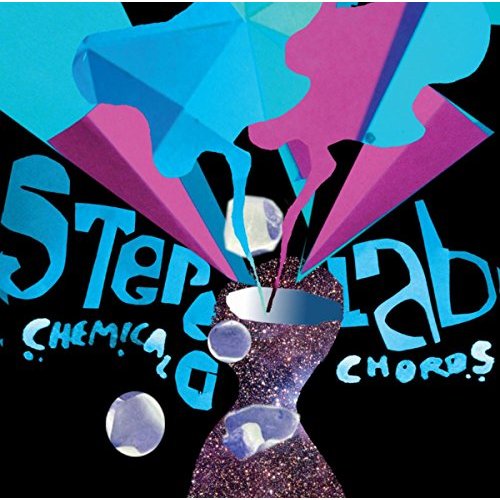
Stereolab
Chemical Chords
Release Date: Aug 19, 2008
Genre(s): Indie, Rock, Experimental
Record label: 4AD
Music Critic Score
How the Music Critic Score works
Buy Chemical Chords from Amazon
Album Review: Chemical Chords by Stereolab
Great, Based on 5 Critics
Based on rating 8/10
At times, Stereolab's music seems so unchanging that it feels more like it was generated by a laser-guided, lounge pop-meets-Krautrock machine than an actual "groop," but the small tweaks they make to their master plan on each album end up making a big impact. On Chemical Chords, Stereolab's 4AD debut, they take a much more pop-focused approach than their immediately previous work -- which is saying something, since neither Fab Four Suture nor Margerine Eclipse were among their more experimental moments in the first place. Actually, the shortness and directness of these songs could be seen as a bigger experiment for the band than their frequent lockgrooves and hypnotic passages; with those trimmed, Chemical Chords presents a version of Stereolab's sound that is just as vivid as their earlier output, but fizzing with immediacy and urgency.
Based on rating 8.0/10
More new than Neu!, with Chemical Chords Stereolab has broken ranks with the (admittedly wonderful) lockstep lounge drones of its past several albums in order to embrace something that is, for them, a bit more experimental: three-minute pop ditties. From the four-on-the-floor arterial throb that opens “Three Women” into a brassy blast of lilting francophilic lyrics and '60s jazz-pop, to the skipping, breathless vocal pop and spidery organs of “Neon Beanbag,” to the bouncy baroque of “Cellulose Sunshine,” these "seriously, we’re not Marxist" Marxists have discovered the spry immediacy that most bands half their age usually lose two albums into a commercial, capitalist-fueled career (just kidding you, 'Lab). Though some of the oddball, art-house tendencies have been lost in this new translation of the band’s music, there has never been a better, brighter or more immediately satisfying pop soundtrack to Das Kapital.
Based on rating 3/5
Eighteen years into their career and six years after the death of backing singer Mary Hansen, Stereolab's first album since 2004 is a riot of bubblegum colour and light, full of playful ideas more than ready to pop. It may be lovely that a ray of sunshine has filled their songs with bliss, but this has also diluted the band's usual urgency. Their trademark Krautrock rhythms are shelved here in favour of Motown and French ye-ye flourishes that bring a schoolgirl enthusiasm to songs such as Neon Beanbag and Daisy Click Clack, rather than the propulsive power they desperately need.
Opinion: Excellent
Has it really been 17 years and 11 albums for Stereolab? I can still remember the thrill of seeing/hearing their second single, “Super-Electric,” thanks to Australia’s national television service, the ABC. Offering a positive out from the muddy puddle shoegazing had flopped into, its Krautrock propulsion, laminar drones and blankly seductive vocals felt like new territory, even as it brashly mined 1970s German modernism and 1960s Radiophonic Workshop aesthetics for its audio-visual presentation. Listen back: it still bristles with ideas, and somewhere in there – maybe it’s in the upward lilt/lift of Sadier’s vocals, and/or the percolations of the Moog – you can hear a lot of what Stereolab have done since.
Opinion: Very Good
Original post-rock hep-cats pass their “sell-by” dateIt now seems somewhat reductive/ridiculous to have so sincerely called anything “post-rock” (hell, “post-anything”). But back in 1990—when London underground collective Stereolab first cohered around the tag-team songwriting/romantic partnership of Tim Gane and Laetitia Sadier—this term actually meant something, with the group’s Moog-driven synth attack squarely competing for attention with the shaggier grunge and shoegaze movements. Sixteen years and 10 albums beyond the group’s oddball 1992 debut, Peng!, the same core elements that initially characterized Stereolab—an unrequited love of Krautrock, lounge, cheesy ’60s pop and “space age bachelor pad music,” combined with lyrics embracing Marxist politics and Situationist themes—are still very much present in its output.
'Chemical Chords'
is available now

